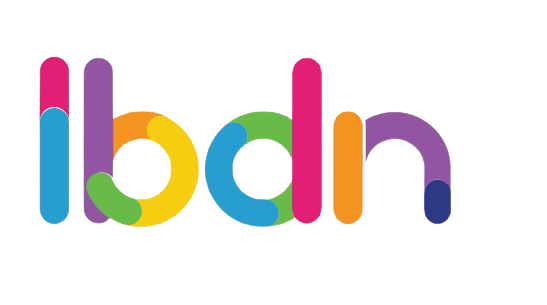
Early Childhood Education

LBDN provides an educational program designed to meet the needs of the whole child and works to successfully prepare them for kindergarten.
Our program is based on the knowledge that young children are active learners involved in a process that uses all their senses as they work and play with people and materials. Professionally trained teachers and caregivers plan activities and arrange stimulating learning environments which are appropriate for the different developmental stages of a child’s life.
Our curriculum at LBDN includes: early literacy, STEM (science, technology, engineering, math), social/emotional, music, and art. We practice an emergent curriculum developed with the children’s interests in mind; this fosters an ongoing love for learning which we know will help all children succeed in their continuing education. Our activities are based on the premise that children learn by doing and children are provided with engaging hands on activities daily. Throughout each child’s stay at LBDN, his/her growth and development are tracked to determine that they are at the appropriate developmental stage for their age and lesson planning is individualized to support this growth.

Our programs are based on developmentally appropriate practices.
The LBDN Infant / Toddler Program
The LBDN Infant / Toddler Program achieves our high standards by applying the following core care principles to ensure that infants and toddlers receive individualized care and attention and that long-term partnerships develop between teachers and parents. 1. Primary Care Groups (PCG): Each child is assigned to a PCG and each PCG teacher is the primary caregiver to children assigned to their group. This allows children to develop and maintain attachments with a specific teacher until they transition to preschool. 2. Low Ratio and Group Sizes: We maintain a 1:3 teacher/child ratio for infants and 1:4 for toddlers. This ratio ensures a greater amount of time spent with each child, facilitating the teacher’s ability to develop intimate relationships. 3. Early Intervention: Recognizing potential developmental challenges early in a child’s life can make the difference between success and failure in the child’s later school experiences. EIP provides: observations, assessments and intervention strategies for children with identified special needs, social/emotional challenges, developmental delays, and/or behavior concerns.4. Quality Classroom Environments: Calm, developmentally stimulating and inviting classroom environments. Our classrooms offer consistency, safety, and ample opportunity for children to expand their skills.5. Continuity of Care: Children who come to us as infants stay with the same teacher and students for up to three years. Each teacher follows their students as they graduate to new levels. Upon reaching the appropriate age of 2.5 to 3 years old, children transition into preschool and change teachers. 6. Parent Involvement and Partnerships: We believe the best experience we can offer a child requires a partnership with parents. Parent involvement is a cornerstone of our organization and intertwined in all we do. Parents receive a daily report; the PCG format encourages parents to form long-term, trusting relationships with their child’s caregiver.Preschool Program
At LBDN, one of our main success indicators is each child’s preparedness to enter kindergarten. School readiness, including early literacy, STEM (science, technology, engineering, math), and music and art, will help all children succeed in their continuing education. The following are key elements of our preschool curriculum. • Children are no longer assigned to a primary caregiver and teachers work together to meet the needs of the children, arrange the environment, and plan and implement activities. • Children with special needs learn to work in a democratic society that includes people who are different in many ways. All children in the group have an opportunity to learn to work with those whose abilities are different from their own. • For older children, being able to engage in play with younger children is an important emotional and cognitive support. Younger children can learn a variety of new social and intellectual skills from observing and interacting with older children. Please see our Early Intervention, Health & Nutrition, Program Team and Family Engagement and Participation sections to learn more! You can also download our Parent Handbook for additional details (unavailable, currently undergoing revisions to align with new regulations).____________________________________________
In accordance with federal civil rights law and U.S. Department of Agriculture (USDA) civil rights regulations and policies, this institution is prohibited from discriminating on the basis of race, color, national origin, sex (including gender identity and sexual orientation), disability, age, or reprisal or retaliation for prior civil rights activity.Program information may be made available in languages other than English. Persons with disabilities who require alternative means of communication to obtain program information (e.g., Braille, large print, audiotape, American Sign Language), should contact the responsible state or local agency that administers the program or USDA’s TARGET Center at (202) 720-2600 (voice and TTY) or contact USDA through the Federal Relay Service at (800) 877-8339.To file a program discrimination complaint, a Complainant should complete a Form AD-3027, USDA Program Discrimination Complaint Form which can be obtained online at: https://www.usda.gov/sites/default/files/documents/ad-3027.pdf, from any USDA office, by calling (866) 632-9992, or by writing a letter addressed to USDA. The letter must contain the complainant’s name, address, telephone number, and a written description of the alleged discriminatory action in sufficient detail to inform the Assistant Secretary for Civil Rights (ASCR) about the nature and date of an alleged civil rights violation. The completed AD-3027 form or letter must be submitted to USDA by:mail: U.S. Department of Agriculture Office of the Assistant Secretary for Civil Rights 1400 Independence Avenue, SW Washington, D.C. 20250-9410; orfax: (833) 256-1665 or (202) 690-7442; oremail: Program.Intake@usda.gov
This institution is an equal opportunity provider.12/09/2022
